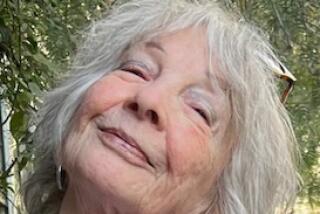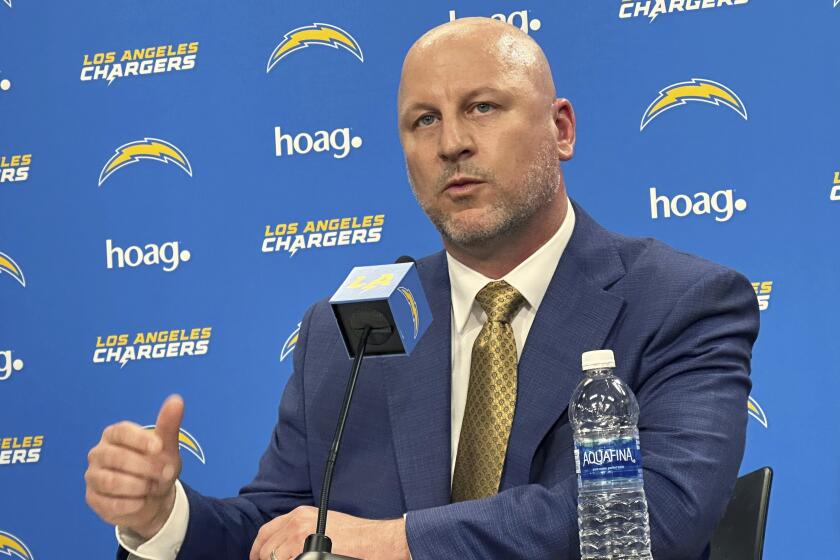Rachel Robinson Recalls Husband’s Pioneering Game
Fifty years ago, Rachel Robinson was like any other young wife having pregame butterflies as her husband took the field for his first game in the minor leagues.
Her nerves were on edge, hoping he would get a couple of hits, steal a few bases and not make any errors. It would be Day 1 on the way to the major leagues.
But Rachel Robinson had more on her mind than hits and errors on April 18, 1946, in Jersey City when the Montreal Royals played the Jersey City Little Giants.
The man playing second base for the Royals 50 years ago was doing more than making his minor league debut. Jackie Robinson was breaking the color barrier, becoming the first black to play in organized baseball in the modern era, and enjoying the moment was near impossible for his wife.
Rachel Robinson simply didn’t know what to expect from the fans, the players or even the authorities.
“We had come from spring training in Florida and it was kind of horrendous with all the raw racial attacks Jack had to take,” she said.
Robinson and his teammates had been locked out of the game in Jacksonville and he had been taken off the field by authorities in Sanford because local ordinances prohibited mixed race games. There were also the rides in the backs of buses, separate lodgings and the racial slurs.
Compounding the situation was his batting slump that spring.
“I was concerned about what the atmosphere was going to be like in New Jersey and that Jack would have a good day,” Rachel Robinson said last week in Newark, N.J. “It was very important for him to do that.”
Arriving from New York City, Rachel Robinson recalled finding a festive mood. Schools had been let out by then Mayor Frank Hague, the ballpark was packed and several bands were playing.
“Somehow, I couldn’t join in the fun of that, emotionally,” she said. “I was just very nervous. I didn’t sit down until the third inning, when he got his first hit. I kind of walked through the aisles, clutching my bag and worrying.
“We needed a job. We had just gotten married on Feb. 10 and we had no savings. There weren’t a lot of options for black professional ballplayers in those days.”
Jackie Robinson, who was then 27, needed only one game to erase his wife’s worries.
According to reports of the game, he received polite applause in his first at bat and then grounded out against left-hander Warren Sandell.
Two innings later, Robinson hit Sandell’s first pitch over the left-field wall for a three-run homer, starting what would be a great day. He singled in his final three at-bats, stole two bases, drove in four runs and scored three more times, twice by inducing balks while on third base.
George Shuba, the Royals left fielder that day and later Robinson’s teammate in Brooklyn, remembers the performance well. He batted behind Robinson.
“He just had a great game,” Shuba said from Mobile, Ala. “I was the fortunate one. He batted second and I batted third, and when he hit the home run everybody was looking to see if a white guy was going to shake his hand. Hell, he was on our side, wasn’t he? No problem.”
Shuba said Robinson never stopped hitting that season and won the International League batting title.
At the same time, Rachel Robinson said her husband was also coming to grips with being more than a ballplayer on his way to the bigs.
“As we went from ballpark to ballpark and black fans began to fill the stands in unprecedented ways and reacted very vocally to anything he did, it became clear to us that he was carrying the aspirations of our race on his shoulders,” she said. “He began to feel that keenly, and he knew if he failed that it would set back social progress for God knows how long. If he was simply doing it for himself, the pressure would have been much different.”
Shuba marvels at Robinson’s 1946 season.
“Most of us could not comprehend that he was able to perform so magnificently under such tremendous pressure,” Shuba said. “He certainly had a great first year in Montreal and I think it was almost more important than the one in ‘47, his first in the majors. He could have hit .220 or got beaned or got injured and not played a lot of games. But everything went right. If he had hit .210 with Montreal, who knows?”
The first year paved the way for a Hall of Fame career that included Rookie of the Year honors in 1947 and a National League MVP award in 1949, when Robinson led the league with a .342 average.
Robinson retired after the 1956 season. A severe diabetic, he died of a heart attack in 1972, a year after his son died in an automobile accident.
Rachel Robinson doesn’t torture herself wondering how much money her husband would have made playing today.
‘I’m glad he played in the era he did,” she said. “I think the game is different. The relationship with the fans is different. It was a very rich period in baseball and I’m glad we had that experience.”
Robinson encountered discrimination and was angered and frustrated by it. He never spoke out early in his career because of an agreement he had with Dodgers executive Branch Rickey.
He did just before he died, but Rachel Robinson said he was more frustrated than bitter.
“He was disappointed he didn’t see more progress,” said Rachel, who runs the Jackie Robinson Foundation, a not-for-profit national educational foundation that has provided college scholarships to more than 400 students since its inception in 1973.
When asked about Robinson’s legacy, Rachel Robinson recalled something he once said.
“Life is not important except in its impact on the lives of others,” she said. “The feeling that an individual who is committed and will persevere can make a difference is part of his legacy.”
More to Read
Go beyond the scoreboard
Get the latest on L.A.'s teams in the daily Sports Report newsletter.
You may occasionally receive promotional content from the Los Angeles Times.










